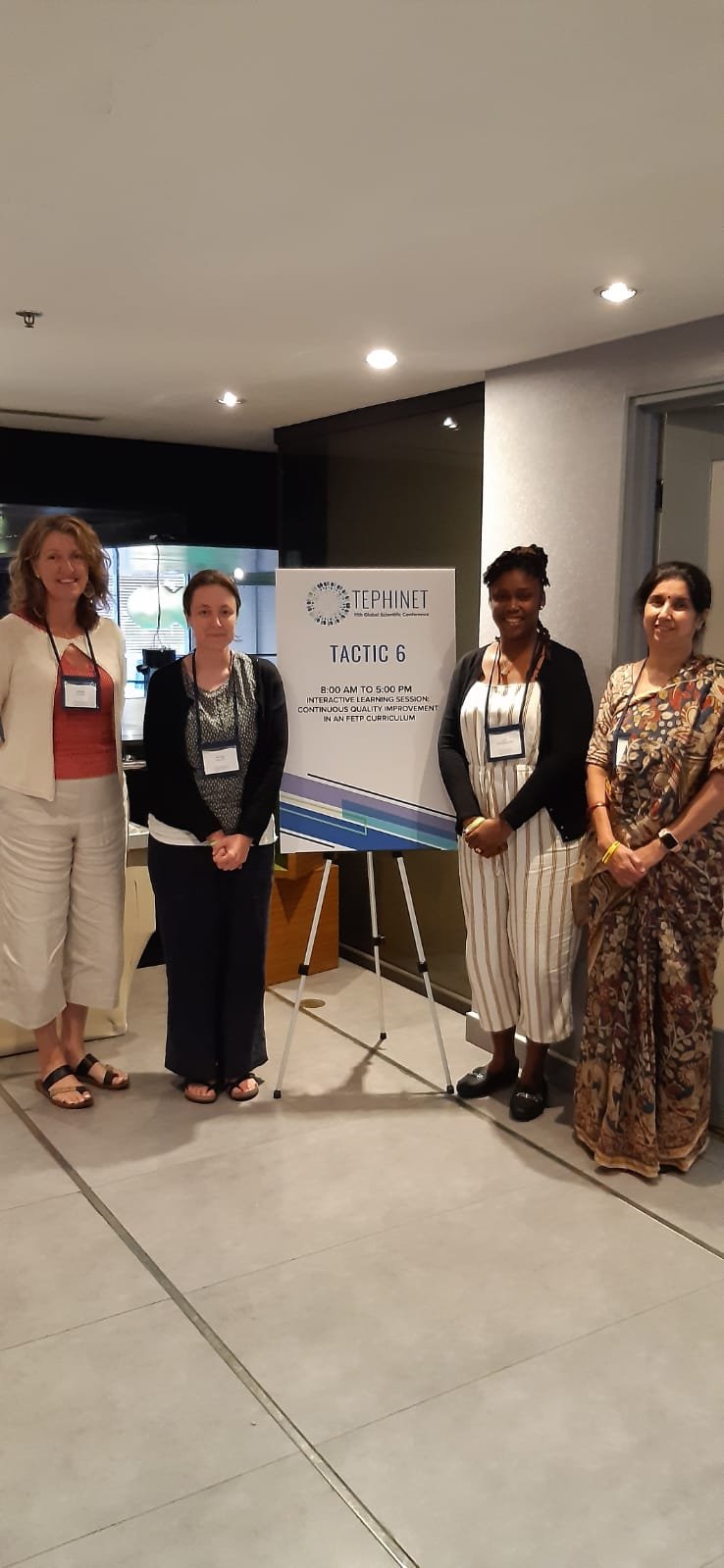We Hosted 3 Interactive Learning Sessions at the TEPHINET Global Scientific Conference in Panama: Here's What We Shared
We were pleased to be able to host three Interactive Learning Sessions (ILS) at the 11th TEPHINET Global Scientific Conference in Panama in September. Thank you to all of our colleagues who joined us from around the world to learn together. If you joined us, please stay in touch and if you weren’t able to make it, we would love to connect and share resources with you from each of the sessions.
Attendees and FEiA facilitators at the Operationalising FETP Impact Evaluation Interactive Learning Session, TEPHINET Global Scientific Conference, Panama, September 2022
Session 1
The ILS on Continuous Quality Improvement in FETP Curricula provided practical steps for participants to embedding a quality improvement process into their programs. Resources are available to download here, including the steps in the process and some of the tools for gathering information and aligning a curriculum.
If you wish to learn more, please email us.
Continuous Quality Improvement in FETP Curricula session facilitators and attendees
Session 2
The Operationalising FETP Impact Evaluation ILS was focused on the practical aspects of evaluating the impact of a FETP. The participants provided input into a draft impact evaluation framework that was co-designed by FEiA and the Impact Institute. There is growing interest amongst the global FETP community to conduct impact evaluations to guide the development and optimisation of programs. We have materials from this session (and others) available at our Resources page.
If you would like to learn more about our impact evaluation work, please visit here or contact James Flint.
Operationalising FETP Impact Evaluation session
Session 3
The aim of the Centering Women in the Planning and Delivery of Field Epidemiology Training Programs ILS was to engage the field epidemiology community to determine how to focus a gender analysis of FETPs. Participants were invited to consider if and how gender intersects with field epidemiology training, including by describing the barriers and enablers to participation and reflecting on how gender is considered in the design and delivery of FETPs. The session culminated with participants developing a path forward for a gender analysis that can highlight how to support gender sensitive and inclusive field epidemiology training.
Please see Our Women in Field Epidemiology Training page for more information and how you can participate in this exciting research.
Centering Women in the Planning and Delivery of Field Epidemiology Training Programs session
About Field Epi in Action
We facilitate proven high impact intervention-based field epidemiology training, designed to develop work-ready graduates equipped with the necessary tools to support outbreak detection and response in the Pacific Islands.




